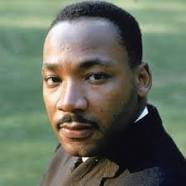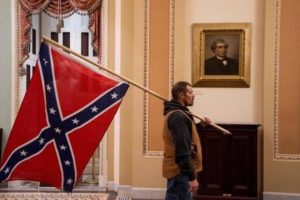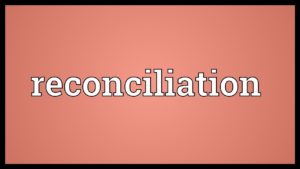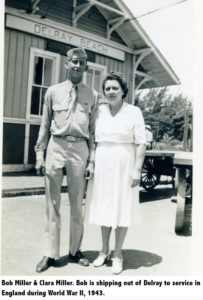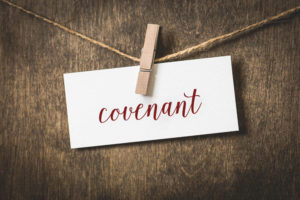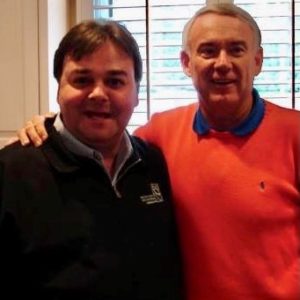
Tom and me: Biltmore Forest, N.C. a few years back.
A month from now, on March 9, voters will go the polls and vote for Mayor and two commission seats in Delray Beach.
The upcoming election gives me an excuse to write about a very special mayor and man who has made a big difference in our city. For me, Tom Lynch has always been the gold standard in local leadership. He’s also played a special role in my leadership journey and for that I am grateful beyond words.
But how do you write about a man who opened up a new world for you?
How do you adequately describe 30 plus years of advice, counsel and inspiration?
The truth is you really can’t.
All you can do is try and share bits and pieces. I do in the hopes that some future leader of our city will find it wise to study Tom’s exemplary model of leadership.
Tom Lynch and I have been friends since the late 80s when I moved to Delray Beach to cover the city for a local newspaper. Tom was a star on the rise in those days—already a very successful businessman, already someone leading in the community—already that someone who had that certain special something you can’t quite put your finger on.
Charismatic. Handsome. Kind. Articulate. A visionary thinker.
When Tom was elected mayor in 1990 we did a front page feature story on him. Tom was a youthful and energetic 41-year-old who oozed confidence but was always down to earth and never egotistical. But he sure looked the part of a confident leader.
I remember thinking about his “presence” when our photographer took photos of Tom in front of his Plastridge Insurance office on Federal Highway.
“Delray is a leader,” said a former city commissioner I quoted for the story. “This man will take us places.”
He sure did.
That’s what special leaders do—they transform.
They take us places that maybe we didn’t know we wanted to go—but when we get there we sure are glad.
In Delray’s case, Tom took us to a place of stability that we longed for after a tumultuous decade that featured lots of political infighting and a revolving door of city managers. When we stabilized, when we began to get along, when we talked through our differences—it felt good. Around town, the possibilities felt infinite. Nothing changed—except the leadership dynamic—and therefore everything changed. We were on the way…
–“Best Run Town in Florida” said the cover story in Florida Trend.
–A coveted All America City Award in 1993.
–An intangible feeling of optimism in the air that made all the difference.
We started believing again.
Sometimes I think we underestimate the value of belief. Businesses, relationships, organizations and yes cities can’t succeed without belief.
Great leaders instill belief.
They make you feel safe and they make you believe that things can get better; we feel protected when they are on the job and that leads to trust, cooperation and achievement.
My wife Diane, who worked in the planning department when Tom was mayor, remembers what it felt like to work with a mayor and commission who cared deeply about what the staff thought and recommended. City staff felt empowered and important, they had a sense of mission and a notion that they were doing big things—and they were doing big things.
My wife and others felt they had found heaven working in Delray where the mayor and commissioners were polite, passionately committed to building something special and willing to stand up for what was right.
Meetings were civil, productive and business like. For someone like Diane it was a sea change from what she had experienced as a young planner in Hollywood where staff presentations were often fraught and stressful exercises.
In Delray, the culture set by Tom was collaboration not confrontation. It made all the difference.
There’s a saying by Maya Angelou that I think sums up some of what I feel about Tom’s leadership legacy: “I’ve learned that people will forget what you said, people will forget what you did, but people will never forget how you made them feel.”
Tom made us feel confident in our future. He made us believe.
We’ve had some terrific mayors before Tom and some good ones since, but Tom Lynch was and is extra special.
He had a calming presence.
He saw the big picture.
He was a holistic thinker and he was kind to staff, fellow commissioners and constituents.
Tom Lynch was the mayor who put us back on track after we were divided and unstable in the 80s. He was blessed with a citizen driven “Visions 2000” and bond issue money which funded a slew of great projects in the 1990s.
One could argue it would have been hard to fail given those advantages, but one would be wrong to assume that success is ever assured.
It takes leadership to execute on a vision, maturity to build a team and strength to steer through the inevitable rough seas. We’ve all seen leaders fail despite given great advantages, it takes skill and intelligence to navigate the land mines which are many in public life.
Nobody did it better than Tom.
For me and I suspect others, he was the gold standard of leadership and I quietly tried to model myself after him. I don’t think I ever told him that. But every time we spoke I was taking mental notes.
We were and are very different people, but there’s a whole lot of common ground too.
We’ve been engaged in a 30 year plus conversation which is the best part of friendship and while we’ve agreed on scores of topics we’ve had a few differences as well.
But we’ve always managed to listen to each other and find a way forward. I learned from our agreements and I learned even more when we saw things differently. His high standard made me want to work hard. If you want to talk about philosophy and leadership with Tom Lynch you best come prepared because he’s thought through or lived through the issues we’re talking about.
While Tom’s civic resume is beyond impressive—mayor of Delray, mayor of the Village of Golf, School Board Chair, Chair of the Business Development Board, President of the Palm Beach County League of Cities—and the list goes on—the true measure of a person is the lives they touch.
Tom has touched more lives through his service, friendship, business acumen and all around goodness than I could possibly quantify.
Personally, I’ve been blessed with many incredible friends and for that I am grateful. My friends have brought me immense joy and have been incredibly supportive through every phase of my life.
But there are four men in my life who have shaped me in ways too profound to describe.
Two of those men were family, my grandfather and original hero Abraham and my father and all-time idol Sandy.
The other two special guys have been Carl DeSantis—my mentor in business who opened up new worlds to me and my family and Tom Lynch who sat me down all those years ago in the old Annex in Pineapple Grove and talked to me about giving local politics a whirl. It took a few years for me to take the leap, but he planted the seed and never left my side through hurricanes, shootings, lawsuits, controversial votes and term limits. He advised me in business and in life, attended my mom’s funeral (even though he didn’t know her), and supported me after a divorce and when I found new love.
Over the decades, we’ve talked about kids, family, education, politics, business, technology, people we admire and how to build cities and companies. We have never run out of things to talk about.
He’s been elemental in my life. Absolutely elemental.
How lucky am I?
How lucky has Delray been?
So my wish is for future mayors to find each to find each other or others who might mentor them so they can be all that they can be.
Because when a mayor succeeds so does a city. Mayors cannot succeed alone. It really does take a village.
I should note, that while Tom and I agree on many things, we are members of different political parties. And yet, we have found a way to be close, to change each other’s minds on occasion and to find a lot that we can agree on.
The two of us are admittedly, a small sample, but it shows that agreement, reconciliation and mutual respect is possible and a whole lot more desirable. We benefit when we open our hearts and minds to the special people in our midst—especially those who see some things differently.
Thirty plus years ago, I interviewed a newly elected mayor not knowing that 10 years later I would be taking the same oath that my mentor and friend took. How could I have known? But I am grateful that I knew enough to listen to this special man because he has meant the world to me and my family and I owe him more than I can ever describe.
Here are five (there are hundreds) of principles that Tom brought to our community:
The notion that cities are like sturdy tables—you need a strong foundation that includes a healthy business community, strong neighborhoods, good schools and healthy non-profits. All the legs have to be strong. Now that sounds basic, but as we navigate the blizzard of campaign mail over the next month watch the messaging of candidates who bemoan “special interests”—code word for businesses and organizations. Truth be told, successful mayors have to cultivate relationships with all the stakeholders in town. Tom felt it was important for the city to be engaged with local schools, homeowner associations and non-profits. He also knew how critical it was for the city to have good relationships with the business community, local cities, the county, School Board, state and federal governments.
Business-like, civil proceedings. As noted earlier, civility and professionalism breeds stability and progress. Delray became ‘the’ place to work not because we paid more than other cities, but because of our culture and the fact that we were doing big, creative things. As a result, we attracted and retained talent. Having institutional knowledge is critical.
Open Government. Tom introduced the “town hall” meeting—which was mothballed even before Covid. But the intent was to provide an annual report to citizens and business owners, much like a corporation does for its stockholders. A big part of the town hall was a presentation giving everyone a full report of where the city stood in terms of projects, financials, building permits, initiatives etc. It was educational and built community.
Brings us solutions, not just your problems. Tom stressed the importance of the community leading the process of providing solutions so he challenged groups to come to the city with ideas on how to fix problems. If there were disputes, parties were often encouraged to work it out before the city imposed a solution that might not be ideal. It proved to be a good incentive.
The Mayor as consensus builder. Tom saw his role as the consensus builder on the dais and so he most often spoke last making sure to hear the thoughts of his fellow commissioners, staff and citizens. He would try to sift through the input to piece together areas of agreement. He built consensus, he didn’t polarize, label or divide. When an issue was voted on and he lost, he moved on and urged others to do so as well.
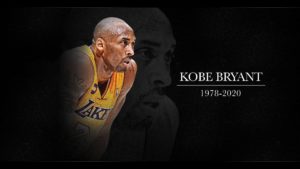
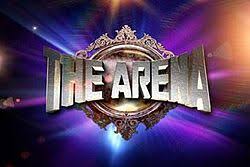
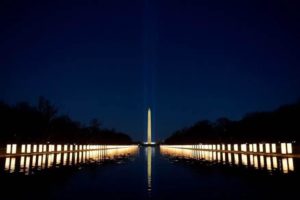 Rituals matter.
Rituals matter.